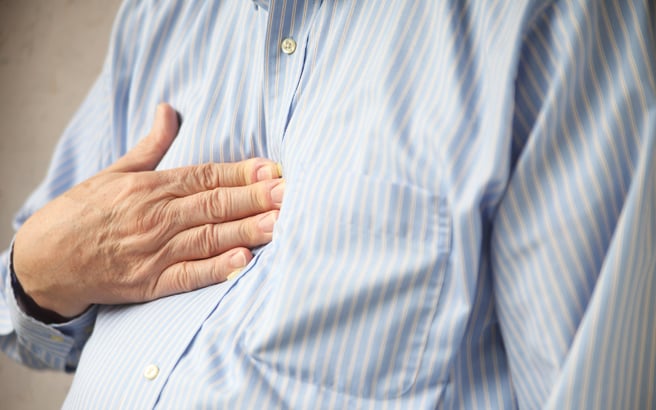Susannah Brown is Science Programme Manager (Research Evidence) at World Cancer Research Fund International. She works on the Continuous Update Project.
The unpleasant symptoms of acid reflux, such as heartburn, indigestion and regurgitation may unfortunately be familiar to a few of us and it is possible that these symptoms could be doing more damage than just being an inconvenience.
Acid reflux is the return of the stomach’s contents back up into the oesophagus. It is thought that this stomach acid can damage the cells of the lower part of the oesophagus and the top section of the stomach. This damage to cells could alter the way the DNA functions, changing the way the cells grow, multiply and die. This could in turn make it more likely for these cells to become cancerous.
Being overweight or obese increases the risk of stomach acid reflux, so this may in part explain why excess weight is a risk factor for cardia stomach cancer (cancer at the top part of the stomach, where it meets the oesophagus) and oesophageal adenocarcinoma (cancer at the lower end of the oesophagus, where it meets with the stomach).
To reduce your risk of both oesophageal cancer and stomach cancer, maintaining a healthy weight is really important. Keeping a healthy weight can also reduce your risk of bowel, breast (post-menopause), gallbladder, kidney, liver, ovary, prostate (advanced), womb and pancreatic cancers.
For more information take a look at our new reports on preventing oesophageal and stomach cancers. These are the world’s most comprehensive reviews of evidence on diet, weight, physical activity and the risk of these cancers.
View our 1 minute video featuring all of our 10 Cancer Prevention Recommendations. For the latest news from us, please follow twitter.com/wcrfint
